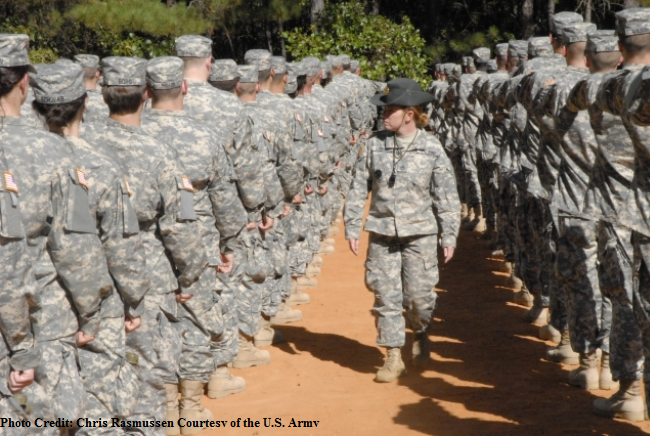FOLLOWERS OF THE MUSINGS!!!!
I'm through Basic Training, and now 4 weeks into AIT. One of the tasks assigned to me was to write an essay on professionalism and the US Army. So I did. I will now share it here for all to see. Is it my best work? No, I had to omit most of my killer quips and sarcastic banter... but it's pretty good. A little "hoo-ah hoo-ah" but... you know... "know your audience!"
And now - the essay....
Professionalism and the United States
Army
Professionalism,
according to the Merriam-Webster dictionary, is a noun. It is a tangible “thing”
that can be measured and observed. The United States Army implements via tasks,
conditions, and standards. Because of the highest standard expected by the
Army, professionalism is an essential ingredient in the mixture of skills and
talents required of every soldier, ensuring the quality of military force
necessary to defend the Constitution of the United States of America against
all enemies, foreign and domestic.
Professionalism
is much more than a direct concept however. It is an abstract idea, a value
imbued into the essence of each of the Army Values. It is a promise, kept by every
soldier to their peers, superiors, subordinates, and those we serve to protect.
It is a promise that guarantees to all that the United States Army will perform
its duties with the highest standard of ethic, with a well-tuned moral compass,
and within the letter of our legal mandates. The world will know that the
United States Army, without question, will perform in the best interests of
liberty and freedom.
An Army that does not embrace
professionalism as an ingrained element of the command and culture is nothing more
than a gun club, with loose association of hierarchy and no commitment to the
ideals it serves. An unprofessional Army uses non-combatants as human shields,
tortures and kills indiscriminately, oppresses those they say they serve; in
essence, they are the very forces the United States finds itself in militarized
conflicts with. Because the United States has a professional Army, it has both
tactical and strategic advantages over this enemy, making short work of their
forces.
Ask any
soldier how they display their professionalism on a day to day basis, and the
list of examples would take quite some time to exhaust. Part of the second general
order states that soldiers will “…perform all [their] duties in a military
manner.” A “military manner” includes in a professional manner. From preparing
a barracks room for inspection to planning a tactical assault, the United
States Army is an army of professionals, displaying their skill and expertise
in every aspect of their day to day lives. The crisp movements in drill and
ceremony, the attention to detail in training, movement, paperwork, and
discipline, all are windows into the professional soldier.
A United
States Army soldier is told from day one in the recruiting process that the
work done by the Army is done by professionals. The Army is not a social club
or a hangout, but a machine of national defense. The Army could not function if
its elements did not embrace a professional approach to their work. If the Army
does not function, the freedoms and liberties enjoyed by the American people are
at great risk.
The United States was born out of
conflict. General Washington and the leaders of the militarized revolution, took
farmers, craftsmen, traders and tinkers, and trained them to be professional
soldiers. Without this advantage, the British might have handily quelled
freedom’s bells before they had a chance to ring across the globe. Today’s
United States Army picks up that mantle, and ensures that anyone who would dare
threaten our way of life will have to go through a formidable force of
professional soldiers, the greatest force for freedom on Earth.





